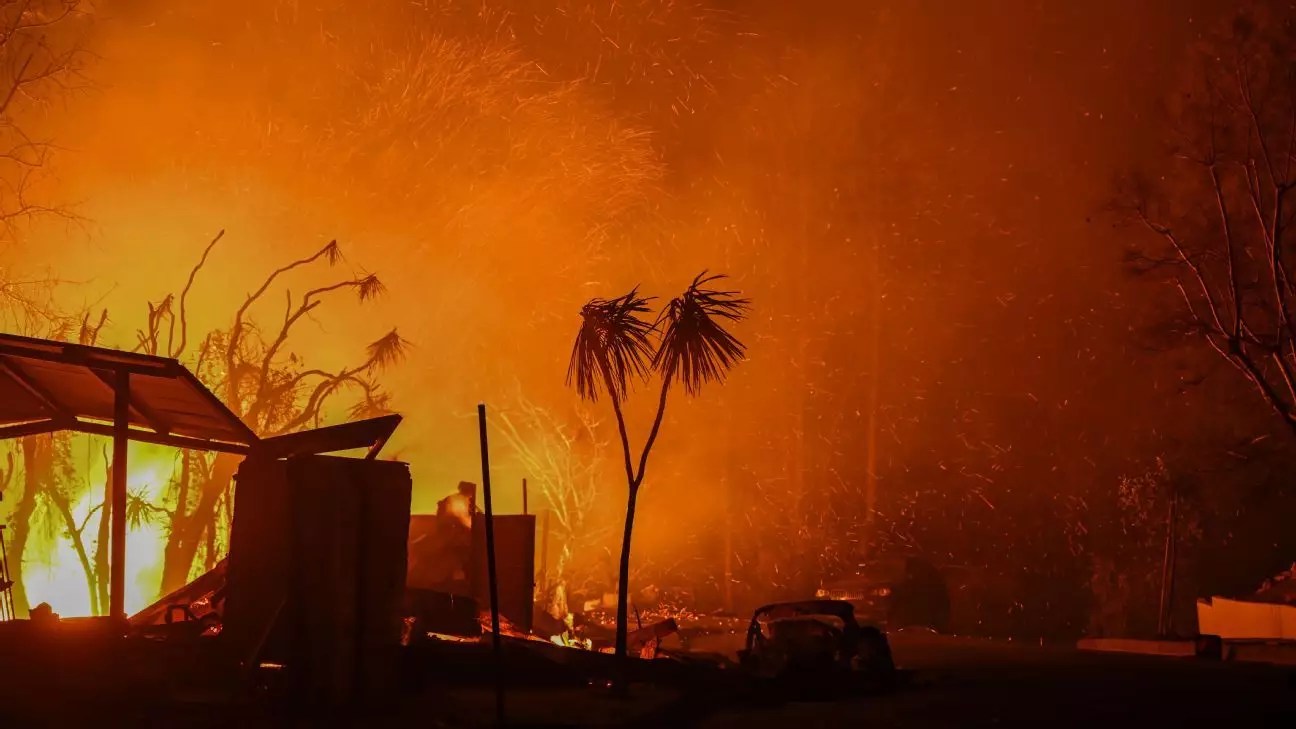The recent fires sweeping through Malibu have left an indelible mark on the community, highlighted by the heartbreaking news that former Mexican football star Carlos Vela’s family home was consumed by flames. Saioa Caínbano, Vela’s wife, took to social media to share the devastating impact of the event, stating, “Our beautiful Malibu home burned down yesterday … We are still in shock with everything that’s happening.” Her powerful words resonate with countless individuals who find themselves grappling with the aftermath of such catastrophes.
The emotional weight of witnessing one’s home—a place filled with memories—reduced to ashes is a profound tragedy. Saioa’s remark about the situation being “very sad and scary” emphasizes the fear and uncertainty that accompany such destruction. Her message of safety amidst the chaos provides a glimmer of hope, not just for their family but for others in similar circumstances who also worry about the wellbeing of their loved ones.
The Palisades Fire, which has been dubbed the most destructive fire in Los Angeles history, has obliterated approximately 1,000 structures, according to the Wildfire Alliance. This statistic underscores a stark reality: these fires don’t just affect individual families; entire neighborhoods and communities are forever altered. The sense of loss permeates, as shared by Angel City FC defender Ali Riley, who remarked on social media, “This was our home. How is this real. It can’t be real.” Her emotions reflect a shared anguish with many others who have been similarly affected.
Such events can lead to a significant ripple effect, as the temporary displacement of families raises concerns about mental health, housing, and community cohesion. As they navigate this trauma, the affected residents require not only immediate support but also long-term recovery efforts to rebuild their lives.
The aftermath of the wildfire has also begun to influence the sporting landscape. Scheduled games, such as the upcoming wild-card NFL playoff between the Minnesota Vikings and the Los Angeles Rams at SoFi Stadium, are now clouded by uncertainty. The NFL has indicated they’re assessing the situation closely and have contingency plans in place, including the possibility of relocating the game to Arizona’s State Farm Stadium. This illustrates the broader implications of environmental disasters that extend beyond individual hardships to disrupt organized events and local economies.
Sports often serve as a unifying force in times of crisis. However, given the extent of damage and displacement, it is evident that the emotional and physical recovery of families like the Vela’s must take precedence over sporting events. The community will need to rally together, not just for the sake of the games, but to support each other in rebuilding lives and spaces that have been deeply affected by these devastating fires.
A Call for Community Support
In times like these, solidarity becomes essential. Reaching out with messages of hope, organizing fundraisers, or volunteering can help alleviate some of the pain that families are enduring. It is crucial that the community not only addresses immediate concerns but also anticipates the long-term recovery process. As families like that of Carlos Vela navigate the repercussions of loss, it serves as a stark reminder of our collective vulnerability to natural disasters and the importance of community resilience in the face of adversity.


Leave a Reply